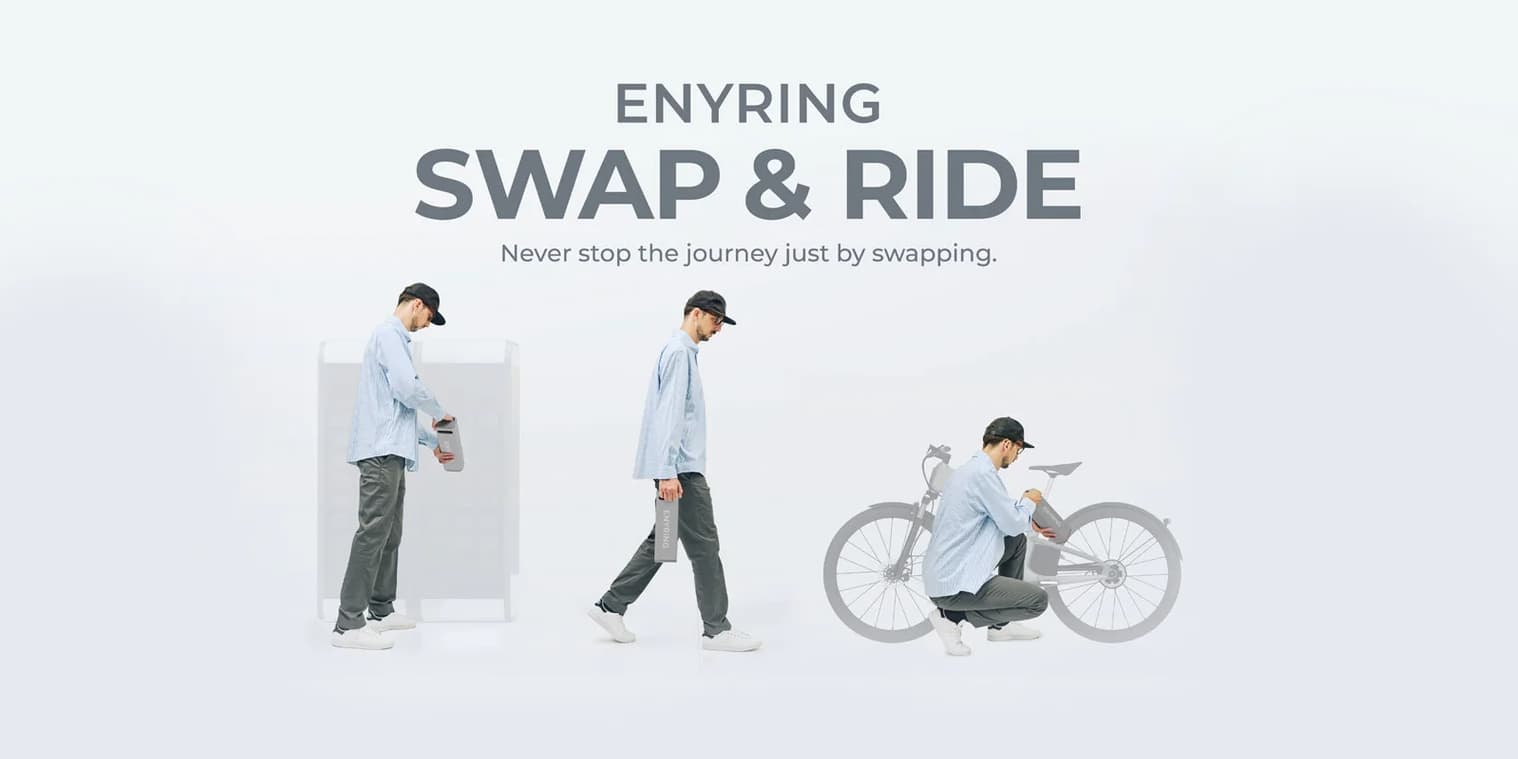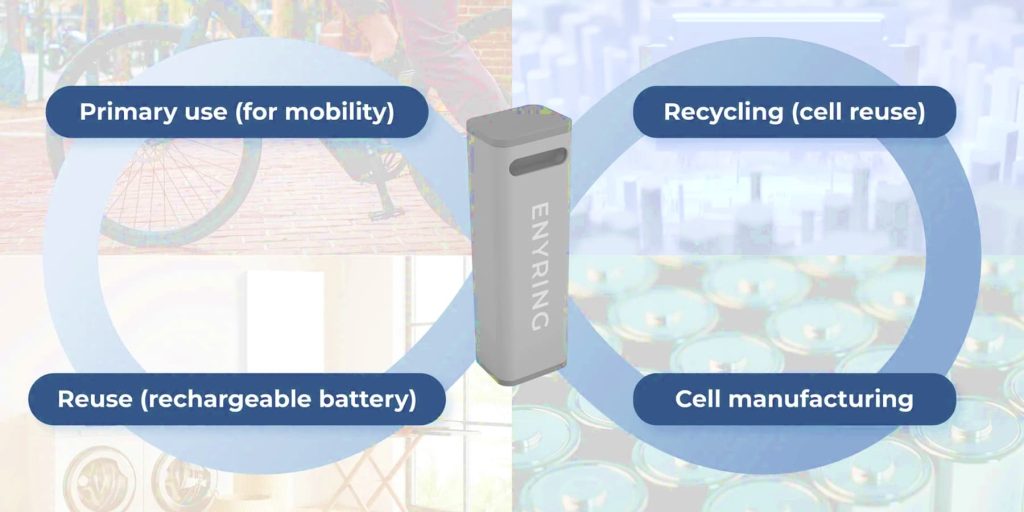
Japanese e-bike manufacturers are making a run towards battery-swapping as a convenient alternative to stopping and charging batteries. Yamaha is the latest company to spin-out a new battery-swapping venture, today announcing its new ENYRING.
Launching first in Europe, ENYRING is focusing on “collaborations between Yamaha Motor and strategic partner companies, and there are plans to launch operations to expand the business in Germany—starting with Berlin—and in the Netherlands.”
Essentially, it’s a way for Yamaha to partner its way toward an e-bike battery-swapping system without having to do all the heavy lifting on its own.
The service plans to start with electric bicycle batteries, explaining that “these batteries can be easily swapped out at any of the swappable battery stations installed throughout a city at any time, eliminating the hassle of recharging as well as the cost of purchasing a new battery once one reaches the end of its lifecycle.”
The service also plans to take older batteries no longer suitable for use in e-bikes and reuse them as storage batteries, disassembling them into cells to be recycled and reused as new batteries. Many e-bike batteries are considered at their end-of-life when they reach between 70-80% of their original capacity, at which point high power drain from hard riding results in depleted range. But those same battery cells can still live on as stationary batteries in energy storage systems.
While the goal sounds admirable, it’s not yet clear exactly which companies will be able to use Yamaha’s batteries, and whether they will work with multiple existing brands or whether the company is attempting to create a new standard that e-bike companies will need to adopt in order to benefit from the ENYRING service.
This isn’t Yamaha’s first rodeo regarding battery swapping, though the company seems to be taking a more leadership role this time. We’ve previously seen Yamaha participate in a consortium led by Honda and other Japanese mobility companies that seeks to implement Honda’s swappable battery system as an industry standard.

Battery swapping technology, such as widespread systems like Gogoro’s, represents a significant advancement for electric bikes and e-mopeds. This innovative approach addresses one of the main challenges of electric vehicle (EV) ownership: recharging time.
Unlike traditional charging methods, battery swapping allows users to exchange their depleted batteries for fully charged ones at designated stations, a process that usually takes just a few seconds. My wife and I use a battery-swapping Gogoro scooter as our daily transportation and have found battery swaps are usually less than a minute.
This convenience effectively eliminates range anxiety and downtime due to lengthy charging periods. For the industry, the widespread adoption of battery swapping could accelerate the transition to electric mobility. It offers a scalable and user-friendly solution, making e-bikes and e-mopeds more attractive to consumers, especially in urban areas where space for charging stations is limited. We’ve seen that exact scenario play out time and again.
Additionally, this system encourages a more efficient use of resources, as batteries can be centrally charged, potentially using renewable energy, thereby reducing the overall carbon footprint of electric transportation. Instead of a battery being used sparingly throughout the week, the same battery can be shared by dozens of riders in near constant use – a far more efficient use of resources.

FTC: We use income earning auto affiliate links. More.



Comments